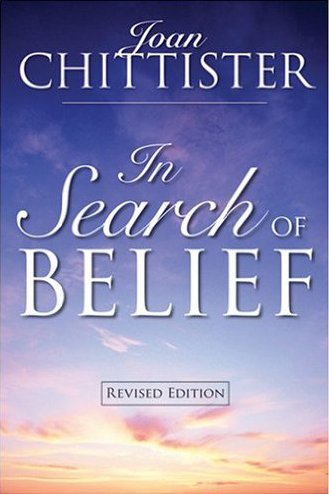Do you believe in the Holy Spirit?
The Holy Spirit, we are told, is the spirit of Wisdom, of the feminine Sophia, in the Church. Each of us, we argue theologically, has a piece of Wisdom, the Spirit working in us to build the people of God, the reign of God, the assembly of God on earth. But how can we do that when all the wisdom the Spirit has to offer never gets taken into account.
If we are to understand emerging consciousness as a manifestation of the Spirit of God alive in the land, then never has an age seen revelation, consciousness, and wisdom working more clearly than in this one. The signs of new awareness of the human relationship to God are everywhere, in all nations, in all peoples. The Holy Spirit has spoken through married couples and professional personnel about birth control, for instance. The Holy Spirit has spoken through women—and other eminent theologians, theological societies, and male Scripture scholars as well—about the ordination of women. The Holy Spirit has spoken through laity and bishops and multiple other rites of the Church alike about the ordination of married men. But no one listens. The Holy Spirit in people of good will is a voice crying in the wilderness, rejected, ignored, and reviled. One element of the Church determines the voice of the Spirit and does so, it seems, by refusing to listen to its other manifestations.
manifestation of the Spirit of God alive in the land, then never has an age seen revelation, consciousness, and wisdom working more clearly than in this one. The signs of new awareness of the human relationship to God are everywhere, in all nations, in all peoples. The Holy Spirit has spoken through married couples and professional personnel about birth control, for instance. The Holy Spirit has spoken through women—and other eminent theologians, theological societies, and male Scripture scholars as well—about the ordination of women. The Holy Spirit has spoken through laity and bishops and multiple other rites of the Church alike about the ordination of married men. But no one listens. The Holy Spirit in people of good will is a voice crying in the wilderness, rejected, ignored, and reviled. One element of the Church determines the voice of the Spirit and does so, it seems, by refusing to listen to its other manifestations.
The Holy Spirit stays with the Church to guide it, the tradition says. But in that case, we as institution and we as individuals alike must open to that guidance, no matter the direction from which it comes. Even when it comes from science. Even when it comes from laity. Even when it comes from women. Unless, of course, we want to argue that the Church belongs to clerics alone, in which case the theology of the Holy Spirit upon which the authenticity and present inspiration of the Church depends, shrivels and dies. The thought of it curdles the soul a bit.
To be a woman and read Wisdom literature—the meanderings of the spiritual mind through the dregs and the divine of the human condition—is especially difficult. There Wisdom is woman, but women have no part in its development. Here, the Spirit is called “Holy Wisdom,” “Sophia,” is also called “she.” Scripture calls the Spirit “ruah,” a feminine word, to describe the feminine aspects of the Godhead, the breath of God, the mighty wind that hovered over the empty waters at the beginning of life in the process of Creation—all images of God, of pregnant waiting and waters breaking and life coming forth. But when Wisdom declares itself, it is always through a male message, without a woman in sight. And so the Wisdom limps.
—from In Search of Belief by Joan Chittister (Liguori/Triumph)
